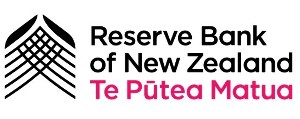
It has started consultation on setting the DTI policy to allow banks to lend 20% of their residential loans to owner-occupiers with a DTI greater than six and 20% of their residential loans to investors with a DTI greater than seven, while loosening the LVR ratios to allow to allow 20% of owner-occupier lending to borrowers with an LVR greater than 80% and 5% of investor lending to borrowers with an LVR greater than 70%.
These settings mean that banks cannot lend more than 20% percent of their lending to owner-occupiers with a DTI greater than 6; and 20% of investor lending to investors with a DTI greater than 7.
Allowing 20% of lending above the proposed DTI thresholds will help minimise potential efficiency costs by giving banks discretion to offer loans to high-DTI but otherwise creditworthy borrowers or for complex cases where a DTI cannot be easily determined.
The RBNZ is proposing to activate DTI restrictions from the middle of this year. This is the earliest date possible following this consultation, allowing time to consider the feedback, and to make final decisions, and for the banks to implement the new restrictions.
In its new consultation paper, the Reserve Bank says currently about 10% of first-home buyer lending is above a DTI of six. This is similar for owner-occupiers, without investment collateral, which will be included in the owner-occupier group along with first-home buyers for the purposes of the DTI restriction.
The RBNZ says the calibration won't initially be binding given existing market conditions where flows of high-DTI lending are low and expected to remain below the proposed speed limit in the near term.
The RBNZ’s view is that DTI restrictions can help to support sustainable house prices at the margins in the medium- to long-term by preventing house prices reaching unsustainably high levels in booms.
Its assessment is house prices "are within the range we estimate to be sustainable, with a lower risk of a house price correction than in recent years," Christian Hawkesby, RBNZ’s deputy governor says.
Modelling by the RBNZ suggests when interest rates are high financial stress begins to be felt at DTI ratios of six and seven. That's higher than in 2017 when the then- deputy governor Grant Spencer said a DTI ratio above five was "pretty high."
"We think if we get up over five that's pretty high. And it tends to be the area where potential stresses are going to emerge if there's a shock to interest rates or incomes," Spencer said in 2017.
However, in 2021 the Reserve Bank said a continued decline in interest rates meant almost 60% of new lending was taking place at a DTI above five, with about a third at DTIs above six.
"We do not consider it appropriate to calibrate DTI restrictions in a way that will capture a large share of lending at current levels. This could create a shock for the housing market and the potential for unintended adverse outcomes, e.g. the loss of customers," the Reserve Bank said in 2011.
Potential of banks losing business
Meanwhile, the Reserve Bank says it's aware the more macro-prudential restrictions, such as DTIs and LVRs that are placed on banks, the greater the chance of loss of customers to non-bank lenders.
"However, the risk is reduced by the easing of LVR restrictions and the non-binding level of the proposed DTI calibration and a large scale loss is unlikely during most of the credit cycle but may be more likely at the peak of the credit cycle when DTI restrictions become more binding,” the RBNZ says.
"Non-bank lenders are a small share of the residential mortgage lending market. We do not foresee DTI restrictions causing loss of customers from the big banks of the scale necessary to be a concern. However, we will monitor this and can move to address this if it occurs.
“Additionally, we will consider how macroprudential policy operate across all types of deposit takers as part of the upcoming DTA standards consultation," the bank says.
Introduction of the tool has also been opposed by banks, with bank lobby group the New Zealand Banking Association maintaining there is a real risk of adverse customer impact if DTIs are introduced.




